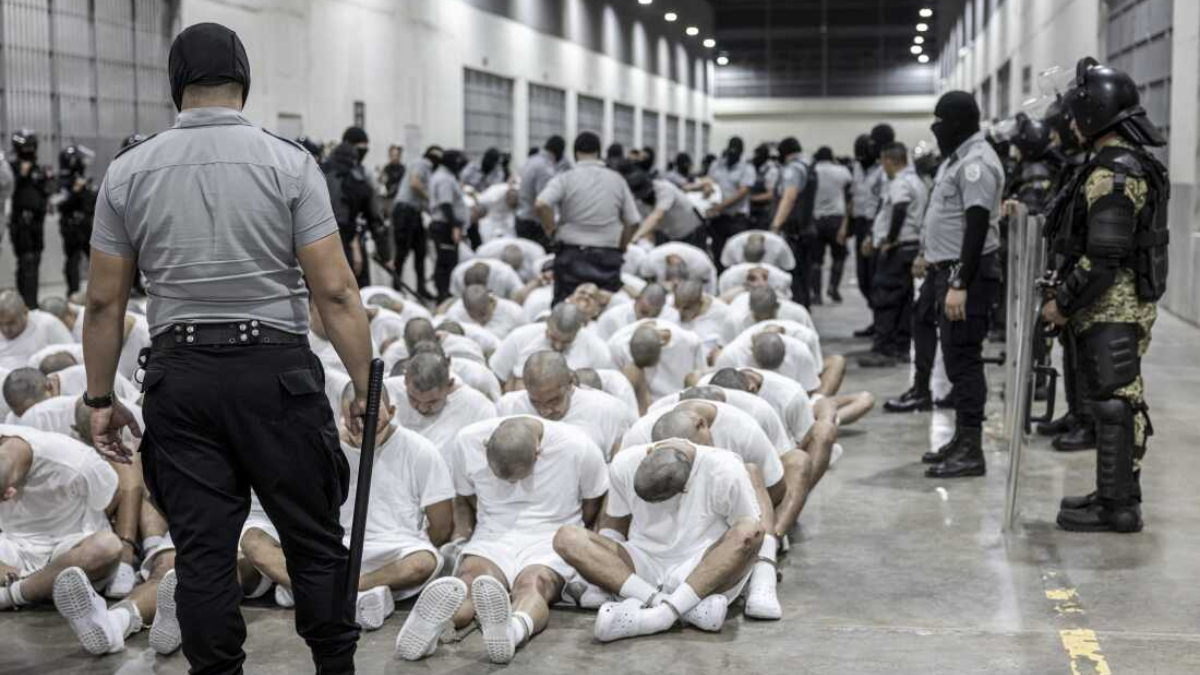The recent deportations of Venezuelan nationals under the Alien Enemies Act have sparked outrage among families and immigrant rights advocates. Many deported individuals were labeled as potential gang members by immigration authorities, a claim their families strongly dispute.
The removals have raised concerns about due process, fairness, and the potential consequences for those sent back to Venezuela.
The Alien Enemies Act, a rarely used law that grants the U.S. government broad authority to detain and deport foreign nationals from countries deemed hostile, has become a focal point in recent immigration enforcement efforts.
The Biden administration has defended the decision, citing national security concerns, but critics argue that the process has lacked transparency and disproportionately affected individuals with no criminal ties.
Families and Advocates Challenge Gang Allegations
Families of those deported argue that their loved ones have been wrongfully accused of gang affiliation. Many deported individuals had lived in the United States for years, working and supporting their families. “My brother has never been involved in any gang,” said Maria González, whose sibling was deported last month. “He came here to escape violence, not to participate in it.”
Immigration advocates have also questioned the evidence used to justify these deportations. Organizations such as the American Civil Liberties Union (ACLU) and Human Rights Watch have called for greater transparency, arguing that many of those targeted had no due process to contest the allegations against them. “Labeling someone a gang member without concrete evidence is a violation of their rights,” said an ACLU representative. “We are demanding a thorough review of these cases.”
The Impact of Deportation on Venezuelan Nationals
Venezuela remains a country in crisis, with ongoing political instability, economic collapse, and human rights concerns. Many deportees now face uncertain futures, with reports of government persecution and violence against those returning from the United States. Families fear for their safety and struggle with the sudden separation.
“This is not just about deportation; it’s about sending people into dangerous situations without any form of protection,” said a representative from a Venezuelan immigrant advocacy group. “We are seeing individuals being sent back to a country where they could be imprisoned, persecuted, or even killed.”
International human rights organizations have urged the U.S. government to reconsider its deportation policies, especially concerning Venezuelan asylum seekers. The United Nations High Commissioner for Refugees (UNHCR) has warned against forced removals to Venezuela, citing the deteriorating conditions in the country.
Political and Legal Implications
The use of the Alien Enemies Act for deportations has sparked legal debates, with some experts questioning its applicability in modern immigration enforcement. Originally enacted in 1798, the law was designed for wartime scenarios and has rarely been used in contemporary U.S. policy.
Legal experts argue that the broad interpretation of the law could set a precedent for future administrations to target other groups under similar justifications. “The way this law is being applied raises serious constitutional concerns,” said an immigration attorney. “It bypasses normal legal procedures and allows the government to act with minimal oversight.”
Lawmakers from both parties have weighed in on the issue, with some supporting stricter immigration enforcement and others calling for a review of deportation policies. Congressional hearings on the matter have been proposed, as advocacy groups continue to push for legal challenges against the removals.
Calls for Policy Reforms and Humanitarian Protections
Amid growing criticism, advocacy groups are urging the Biden administration to implement policy changes that prioritize humanitarian protections. Some have called for an immediate halt to deportations to Venezuela, while others advocate for stronger due process rights for those facing removal.
“The U.S. has a moral and legal obligation to ensure that deportations do not result in harm,” said a representative from Amnesty International. “We need a system that upholds human rights and protects individuals from wrongful removal.”
In response, the Department of Homeland Security (DHS) has stated that it is reviewing its enforcement policies and will continue to prioritize national security while ensuring fair treatment for immigrants. However, critics argue that more immediate action is needed to prevent further harm to vulnerable individuals.
Conclusion: Balancing Security and Human Rights
As the debate over Venezuelan deportations continues, the broader issue of immigration policy and human rights remains a key challenge for the U.S. government. Families of deported individuals, legal experts, and advocacy organizations are calling for greater accountability and a reassessment of enforcement strategies.
The future of these policies remains uncertain, but the impact on affected families is undeniable. With mounting pressure on the administration, the question now is whether lawmakers will take action to address these concerns or continue the current course of enforcement.
For more details on immigration policies and human rights concerns, visit American Civil Liberties Union.
Disclaimer – Our team has carefully fact-checked this article to make sure it’s accurate and free from any misinformation. We’re dedicated to keeping our content honest and reliable for our readers.
